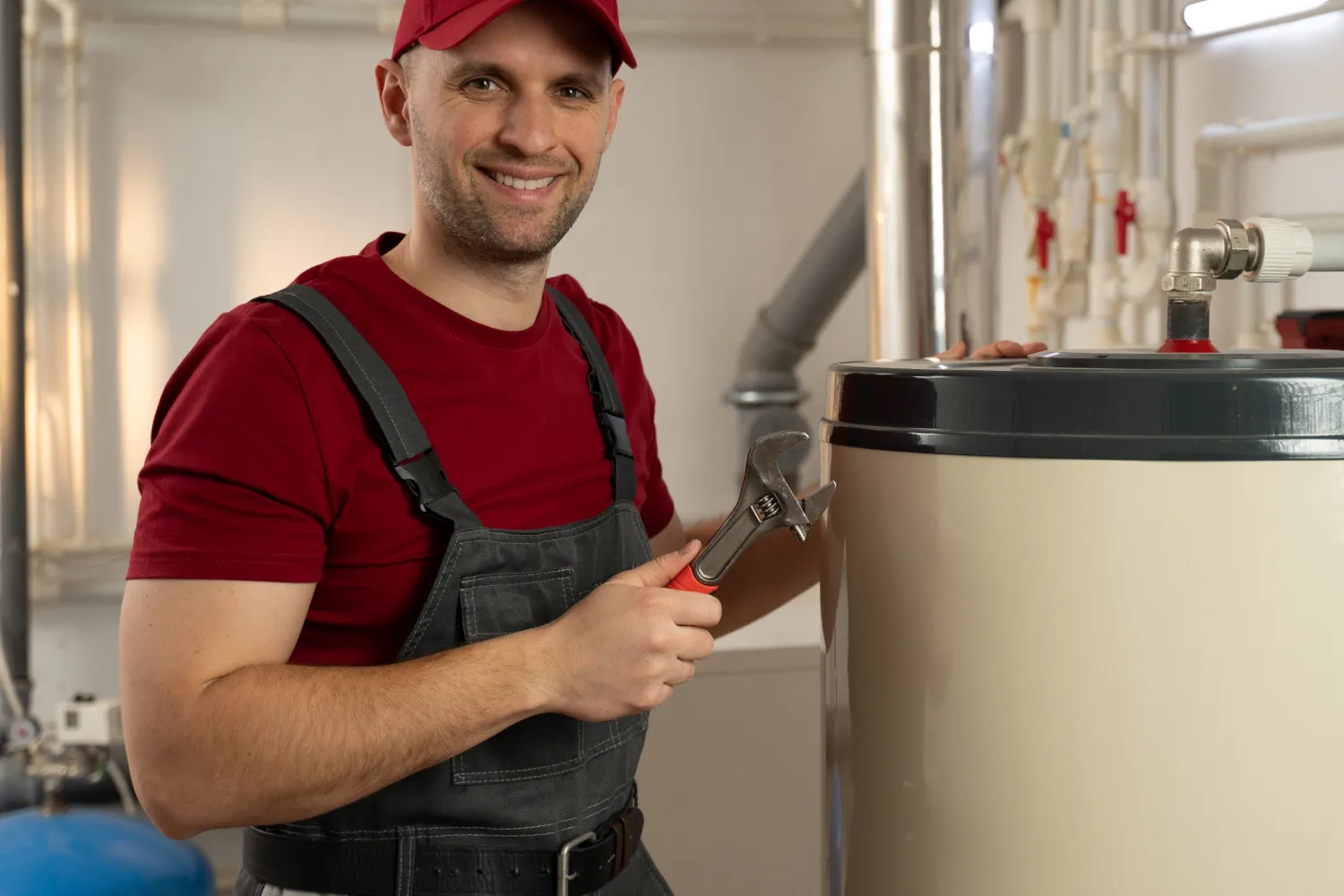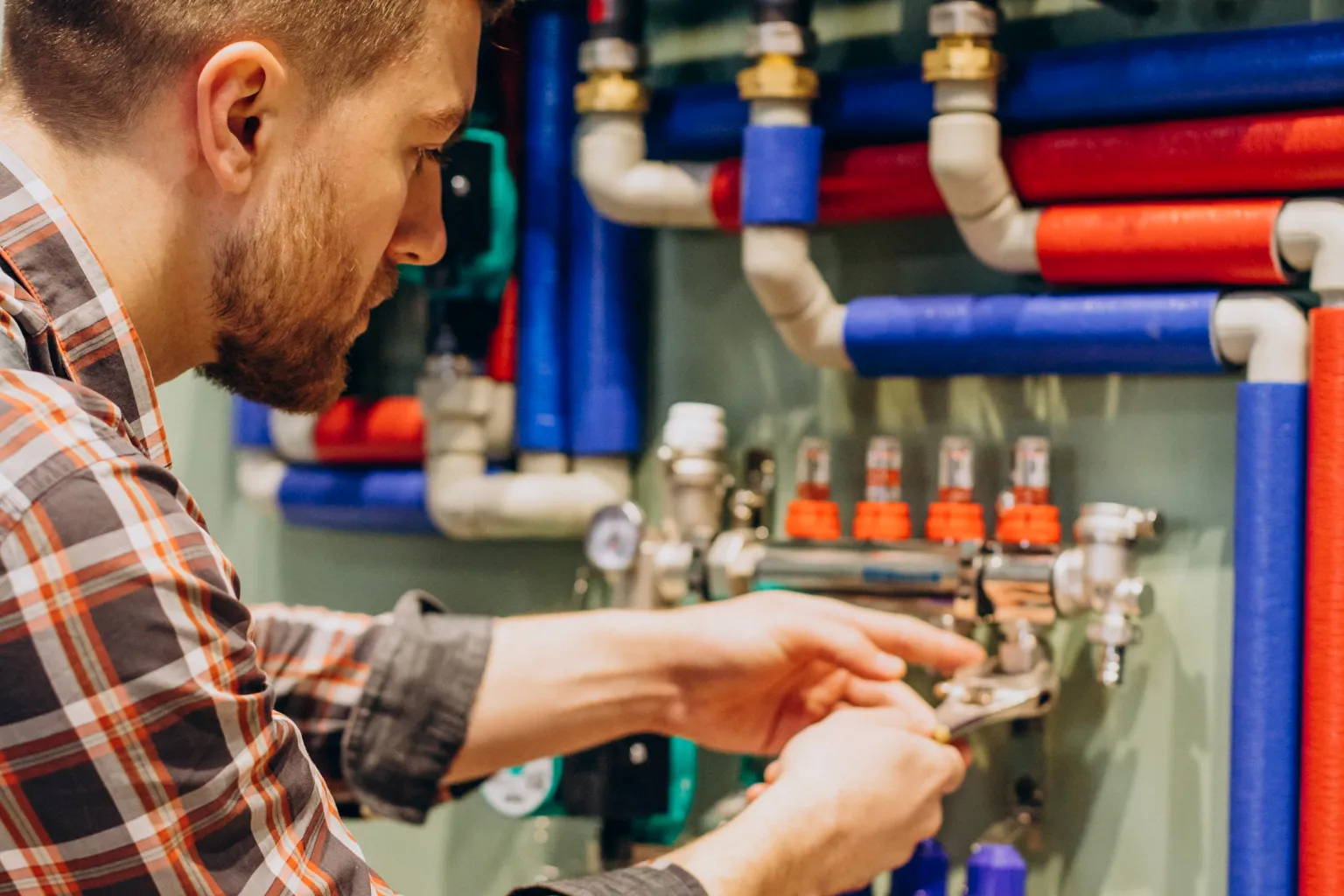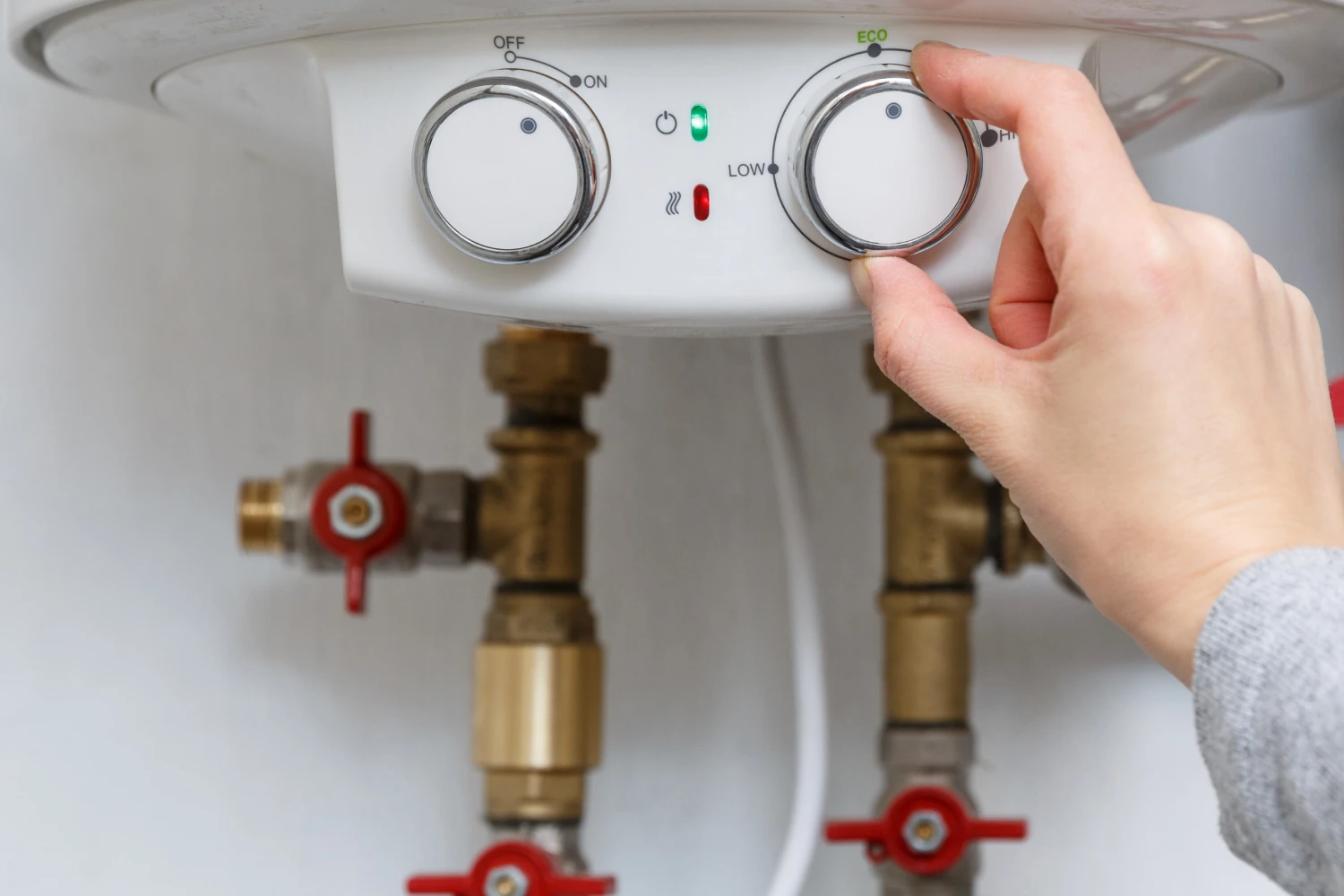
Blog
Residential Boiler Maintenance: 15 Key Tips for Homeowners

Right off the bat, it’s great that you're looking into residential boiler maintenance rather than frantically googling “boiler leak, HELP.”
This proactive approach shows you care about keeping your home warm, safe, and comfortable, choosing to get ahead of any potential issues.
At Ros Plumbing, we have been servicing the San Francisco Bay Area for over 20 years, and we understand the importance of regular boiler maintenance all too well.
Proper and timely upkeep ensures energy efficiency, extends your boiler's lifespan, and prevents potential injuries from issues such as burst pipes. Ros Plumbing's boiler repair services ensure your system runs efficiently and safely year-round.
To help you maintain peak efficiency and extend the lifespan of your residential boiler, here are our top 15 essential tips:
General Residential Boiler Maintenance Tips
1. Annual Inspection
Schedule an annual inspection by a licensed technician to check for leaks, ensure safety controls are functioning, and optimize performance.
Routine maintenance is key to preventing costly breakdowns. Schedule an annual boiler service with a licensed technician to inspect and tune your system. This proactive step can identify potential issues early on, ensuring your boiler operates smoothly throughout the year.
Regular boiler maintenance saves money—avoiding costly repairs that can exceed $15,000 in the Bay Area—and enhances efficiency, cutting energy bills up to 15%.
2. Maintain Optimal Water Pressure
Regularly check the boiler pressure gauge to ensure it's within the recommended range as specified by the manufacturer.
Low pressure can lead to inadequate heating, while high pressure can damage the system. Refer to your boiler’s manual for the recommended pressure levels and adjust as necessary.
Aim for a pressure gauge reading between 1 and 1.5 bar for optimal operation. Remember, water pressure is like the lifeblood of your boiler system!
3. Flush the System
Periodically flush the boiler system to remove sediment buildup, which can reduce efficiency and lead to corrosion.
Sediment accumulation is common in both hot water and steam boilers and can hinder heat transfer and system longevity. Flushing involves draining the boiler, cleaning out sediment, and refilling with fresh water to maintain optimal performance. Professional residential boiler maintenance services can ensure thorough flushing and overall system health, contributing to efficient and trouble-free boiler operation.
4. Keep the Boiler Ventilated
Ensure your boiler room has adequate ventilation. Avoid using the space for storage to allow proper airflow around the boiler. A well-ventilated boiler room allows for proper combustion and prevents the buildup of harmful carbon monoxide. Imagine your boiler needing fresh air to breathe, just like you!
Inspect and clear flue vent openings regularly to prevent blockages. Proper ventilation is crucial for safe operation, as it allows harmful gasses like carbon monoxide to vent outside. Clear any debris or obstructions to maintain optimal performance.
5. Check Pilot Light/Ignition
Ensure the pilot light or ignition system is working properly. For electric boilers, check the heating elements.
During operation, check the color of your boiler’s flame. A steady, blue flame indicates efficient combustion. If the flame appears yellow or smoky, it may indicate a ventilation or burner problem. Contact a professional technician for inspection and repairs.
6. Monitor Water Levels
For steam boilers, monitor water levels using the sight glass and ensure they are maintained according to the manufacturer's recommendations.
Check and maintain the boiler’s water level according to manufacturer guidelines. Low water levels can damage the boiler and lead to inefficiencies. Keep the boiler adequately filled to ensure safe and effective heating.
7. Inspect Pipe Insulation
Check the insulation around your boiler pipes and tank. Proper insulation minimizes heat loss, enhancing your boiler’s efficiency. Look for any signs of wear or gaps and repair or replace insulation as needed. Did you know that proper insulation can save you up to 10% on your heating costs?
8. Test Safety Devices
Regularly test safety devices such as pressure relief valves to ensure they operate correctly in case of emergencies.
9. Clear Surroundings
Keep the area around the boiler clear of clutter, debris, and flammable materials to reduce fire hazards and allow for easy access during inspections.
10. Follow Manufacturer's Guidelines
Adhere to the maintenance schedule and guidelines provided by the boiler manufacturer to maintain warranty coverage and optimal performance.
Now following the manufacturer's guidelines ensures you maintain warranty coverage and achieve optimal performance for your boiler. However, maintenance specifics can vary based on the type of boiler you have.
11. Bleed The Radiators Regularly
This would fit well under the section for hot water boilers or steam boilers, depending on the type of system discussed. Air trapped inside radiators can prevent them from heating up evenly. Bleeding the radiators involves releasing trapped air, ensuring consistent warmth throughout your home.
To bleed a boiler, you typically locate the bleed valve on the radiator and use a radiator key or screwdriver to open it slightly. As air escapes, you'll hear a hissing sound. Once water starts to drip out steadily, close the valve to prevent water leakage.
12. Run Your Heating Occasionally During Summer
Even during warm months, running your boiler for short periods can help prevent internal components from seizing up and ensure smooth operation when the cold weather returns. It's like giving your boiler a light workout to keep it in shape!
13. Replace System Filters Regularly
Filters trap dirt and debris, protecting your boiler's internal components. Replacing them at recommended intervals ensures smooth operation and extends the lifespan of your system. Just like changing your air filters, clean boiler filters keep things running smoothly!
14. Test CO Detectors Regularly
15. Stay Alert For Warning Signs
Watch out for unusual noises, leaks, changes in water pressure, strange odors, rust or water discoloration, unexpectedly high energy bills, uneven heating, and vibrations. Addressing these signs promptly can prevent minor issues from escalating into major repairs. Don't ignore the warning bells your boiler might be ringing!

Home Boiler Maintenance Tips According to Boiler Type
Different types of boilers require tailored care, including distinct hot water boiler maintenance tips, due to their specific operational characteristics.
For example, hot water boilers heat water to distribute throughout the home, maintaining a consistent temperature. In contrast, steam boilers generate steam, which requires careful management of pressure and heat transfer mechanisms.
Here are residential boiler maintenance tips categorized by type to help you maintain optimal performance and reliability:
1. Hot Water Boilers
- In addition to general maintenance, check and adjust water flow rates to maintain optimal heating efficiency.
- Inspect and clean the circulator pump and motor to ensure proper operation.
- Test zone valves and controls to ensure they open and close properly.
2. Steam Boilers
- Regularly drain and flush the boiler to remove sediment and prevent buildup that can impair steam circulation.
- Inspect steam traps and replace as necessary to maintain efficient heat transfer and prevent water hammering.
3. Condensing Boilers
- Pay special attention to the condensate drainage system. Keep it clear to prevent blockages and corrosion.
- Clean and inspect the condensate trap and heat exchanger annually to maintain efficiency.
4. Non-Condensing Boilers
- Check combustion efficiency annually and adjust as needed to optimize fuel usage and reduce emissions.
- Inspect and clean flue gas passages to prevent soot buildup, which can reduce efficiency.

Maximizing Boiler Efficiency for Ecological Benefits
A boiler's efficiency is crucial for minimizing fuel waste and maximizing cost savings. With maximized boiler efficiency, you can also take pride in your ecological benefits!
Climate change is exacerbating global water scarcity. By 2030, demand for water is projected to outpace supply by 40%, posing significant challenges worldwide. This crisis affects every country, including California, where nearly one million residents face compromised water systems, often relying on contaminated water sources.
Follow these essential boiler maintenance tips for year-round efficiency, safety, and longevity. Regular upkeep enhances performance and extends boiler lifespan. Contact Ros Plumbing in San Francisco for professional boiler services.
Whether you're installing, repairing, or servicing your radiant floor heating system in San Francisco contact Ros Plumbing today.
